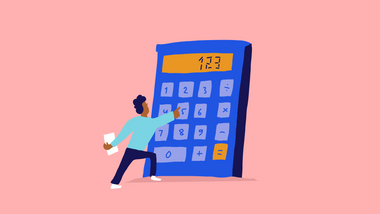Calculating Taxes: The Self-employed & Freelancer Guide
Partner of a partnership business or sole proprietor? If you’re self-employed and earning an income in Hong Kong, this article will help you get up to speed on all you need to know about calculating taxes for freelance work.

In order to know how to calculate freelance taxes, it’s important to understand the bigger picture. So let’s start there. If you’re self-employed in Hong Kong, income tax is a legal and going-nowhere-obligation. The good news is that the rates you pay here are some of the most attractive globally and compared to most European and Asian countries, they’re also considerably lower. A great start, isn’t it?
In this article, we’ll look a bit closer at self-employment in this context, and unpack the tax obligations most relevant to freelancers in Hong Kong.
By the way, if you decided to take it one step further and register your private limited company in Hong Kong, we can help you make it official, let us know!
Freelancing & Self-employed: A Definition
Here’s a simple way to unpack the definition of someone who is self-employed or operating as a freelancer in Hong Kong. In the context of this article, it applies to any individual whose profession, trade or business earns them an income through:
- Providing professional services
- Providing personal services
- Buying goods
- Selling goods
To paint a clearer picture of those definitions when it comes to the formal business structure, a self-employed person or freelance could be operating as:
- A sole proprietor
- A partner of a partnership business
I’m Self-employed. What Are My Tax Obligations?
Get started in Hong Kong.
Your complete guide on how to start a business in Hong Kong.
So you’re self-employed and deriving an income from within Hong Kong? An important consideration is that your taxes are not automatically deducted from what you earn. After all, you’re operating as an individual and not starting a business in Hong Kong. This means it falls on you to be aware of your responsibilities and stay tax compliant (don’t worry, we’re here to help along the way).
It’s easy to get swept up in the day-to-day of running your business and let the less-sexy things (like tax planning) fall by the wayside. The best way to tackle these tax obligations is to keep them top of mind and face them head on. Unless you’ve already received the tax return from the IRD, you’ll need to notify them in wiring about your tax liability.
Different people resonate with different methods of motivation, here’s an example of how you could compartmentalise the whats, whens and whys of tax obligations as a freelancer in Hong Kong:
| THE IMPORTANT “THING?” | THE IMPORTANT “TIMEFRAME”? |
|---|---|
| Sufficient & comprehensive business records or related documents | Keep ‘em all. For at least 7 years. |
| Business books prepped based on your accounting records | Annually, with every tax return. |
| A completed tax return outlining all business profits & losses (supplied to the Companies Registry) | Within 3 months from the issuing date of Individual Tax Return |
| Official notice to the IRD about cessation of business | Case-by-case (i.e as, if or when it may occur) |
| Official notice to the IRD about change of business address | Within 1 month of physical change |
To Calculate Your Taxes, First Calculate Your Income
More specifically, your net income (i.e. assessable income after deductions and allowances) as a freelance professional. Your vocation in the world of self-employment may be trailblazing but in the eyes of the IRD you’re deemed an independent contractor. This means paying a flat rate of 7.5% on the first HK$2million earned and 15% on the rest of your profits.
Sole Proprietorship or Partnership Business?
Regardless of the structure or business model you settle into, you’ll still be subject to profits tax on the (assessable) profits you make. We’ve broken it down below but if you need an actual human to chat it through with you, just shoot us a message.
Sole proprietorship (100% ownership of your business)
For sole-proprietorship business, the salary that you pay yourself should not be reported under Part 4 (Salaries Tax) of the BIR60 form, but it would be under business profits -Item 7 (Assessable Profit) in Part 5 (Profits Tax) of the form.
Owner of more than 1 sole-proprietorship business? Impressive.
Don’t forget to supply details of both of those sole-proprietorship businesses in the BIR60 form (just keep the particulars of each separate)
Partnership (The business isn’t 100% owned by you)
Unlike the example above where details are reported in Part 5 of BIR60, this case is different. A partnership where a business is not solely owned by you for the full year, you’ll ned to report on the Profits Tax Return (BIR52)
Got any questions?
Our team’s just a click away to answer them. We’ll take over your accounting tasks for your company . ‘Cause this entrepreneur grind is tough. But we know you’re tougher.







